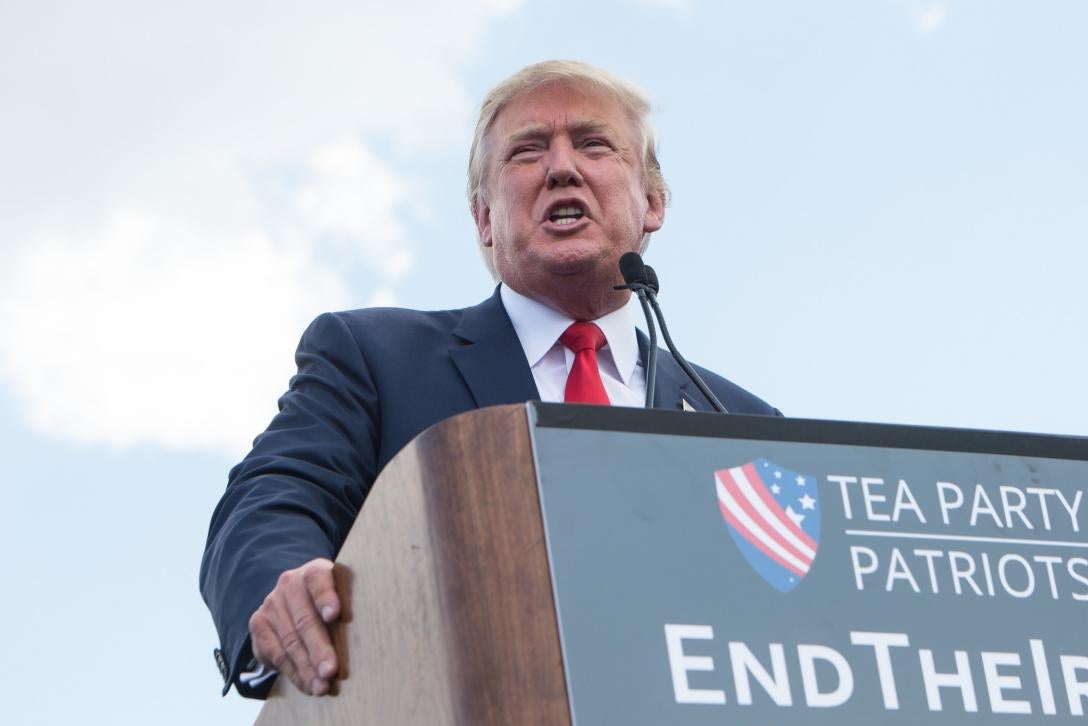Donald Trump campaigned as what you might call a spend-and-spend Republican, promising tax cuts galore, an infrastructure binge, and new childcare subsidies while vowing not to touch Medicare and Social Security. This has led some to suggest that our president-elect might be on a collision course with traditional burn-the-budget conservatives in Congress, including House Speaker Paul Ryan.
Now that the new administration is taking shape, however, that conflict is starting to look far less likely. After running as a new kind of Republican populist, Trump is suddenly surrounded by hardline former Tea Partiers who want nothing more than to help Congress cut Washington down to size.
Consider: Over the weekend, the Trump tapped Rep. Mick Mulvaney of South Carolina to lead the White House’s Office of Management and Budget, offering the former restaurant franchise owner a low-wattage but deeply influential position of power. Mulvaney is a monomaniacal budget hawk who was elected during the Tea Party wave of 2010. He became notorious during the first debt-ceiling standoff, during which he argued that the U.S. could safely breach its borrowing limit and co-authored a spartan budget plan called “cut, cap, and balance” that would have would have slapped a hard limit on government spending as a percentage of the economy and sent a balanced budget amendment to the states. Republicans in the House passed it overwhelmingly.
As head of OMB, Mulvaney will be instrumental in crafting the White House’s annual budget. And while that document might be more of a political showpiece than something that anybody expects to see passed, Trump is nonetheless about to take his fiscal-policy advice from a man who is comfortable risking the full faith and credit of the United States in order to reduce federal outlays on things like healthcare or feeding the poor.“Right now we are nearly $20 trillion in debt, but Mick is a very high-energy leader with deep convictions for how to responsibly manage our nation’s finances and save our country from drowning in red ink,” the president said in a statement announcing his pick.
Once he joins the administration, Mulvaney will have at least two Tea Party comrades in arms on the domestic policy front. Last month, Trump picked Georgia Rep. Tom Price as his secretary of health and human services. The former orthopedic surgeon joined the Tea Party caucus in 2011 and is perhaps best known as an implacable Obamacare opponent. But Price also happens to be chair of the House Budget Committee, a post he’s used to pass a Ryan-style austerity plan that, among other things, would turn Medicare into a voucher program. He’s also proposed budget process reforms that would automatically slash federal entitlements, including Social Security and Medicare, to keep the U.S. from excedding “long-term limits” on its debt.
Discouragingly, Price—just like Mulvaney—has insisted that that U.S. could plow through the debt ceiling without defaulting on its Treasury obligations by prioritizing payments to bondholders. Suffice to say, there are many problems with that position, and the idea that two people who believe it will be within earshot of Trump, who has also seemingly toyed with the U.S. defaulting, is horrifying.
As Trump’s point man on health care, Price seems poised to play a starring role in any negotiations over entitlement reform, which means Medicare privatization could very well be on the table for a president who promised early and often not to tinker with it. And while Price may might not have any formal powers in the budget process, it’s hard to imagine the administration wouldn’t call on his expertise there as well.
That brings us to Trump’s original bridge to the right, Vice President-elect Mike Pence, who was essentially a proto-Tea Partier when he arrived in Congress, and later joined up with the caucus in the early Obama years, giddily jumping on board with ideas like cut, cap, and balance. At this point, it’s hard to guess exactly how much power Pence will have as VP, but given that his boss can barely string together a straight sentence about any significant policy matters, it seems safe to bet it’ll be substantial. Between him, Price, and Mulvaney—all of whom have gotten Paul Ryan’s seal of approval—we may finally be looking at the three horsemen of the Tea Party apocalypse riding into the White House.
And there may not be anyone in the administration to resist the offensive. Chief political svengali Steve Bannon has big plans for a Keynesian spending spree, but I seriously doubt he has ever looked at a federal budget, much less understands how to craft one. Treasury Secretary-in-waiting Steve Mnuchin has demonstrated little policy interest outside of tax cuts, and Commerce Department pick Wilbur Ross—one of the chief proponents of Trumponomics during the campaign—has no political experience to speak of. As for Trump himself? He’s made some paradoxical noise about balancing the feds’ books while implementing his enormous tax cuts. But more to the point, compared to his utter disinterest in policy specifics, he has seemingly invested a great deal of effort weighing his personnel decisions.
We elected a delegator-in-chief. He’ll probably be tweeting while the budget burns.
